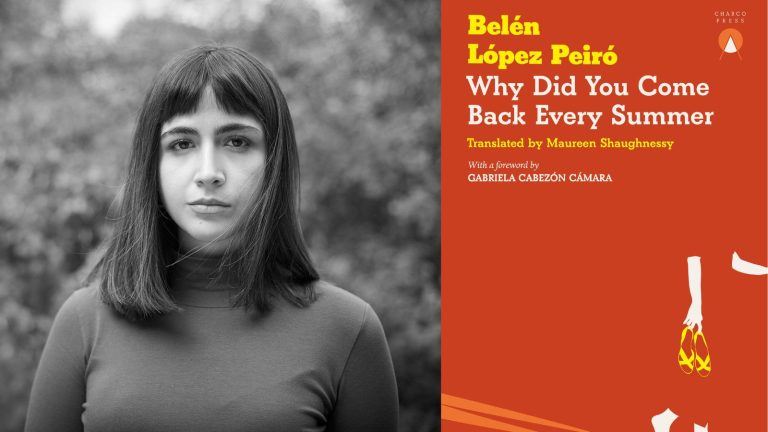
Belén López Peiró’s courageous debut novel is a crystal-clear denunciation of abuse
28 March, 2024Despite the conflicts within this web of voices, Belén López Peiró’s book is a crystal-clear denunciation of abuse told with rage and exactness.
“Se acabó. Ya está. Terminó. C’est fini. Me liberé“. I’ve done it. It’s over. It’s finished. I’m free. Argentine writer Belén López Peiró was finally able to write these cathartic words last year following an excruciating decade of denouncing her abuser.
Why Did You Come Back Every Summer, López Peiró’s first novel of only 200 pages, threaded with blank space, demonstrates through craft and precision how writing can liberate us. It is a testament to the immense strength it takes to speak out about sexual abuse —in this case, child sexual abuse— and reminds us that despite the uphill battle, the truth must be championed.
The book, first published in Spanish in 2018, weaves together memories of the abuse the protagonist suffered at the hands of her police commissioner uncle, both at his home where he lives with the protagonist’s aunt and cousin in a small town in Buenos Aires province, and at the girl’s own home in the capital, where her uncle would bowl through whenever he pleased. These memories take place over a number of tender pre-teen and teen years and are interrupted by legal affidavits from family members and neighbours, and hurtful monologues from these people and more, directed at or talking about our protagonist after she has spoken out about the abuse.
In a sense the book is a memoir, but given López Peiró incorporates the voices of neighbours, family members and lawyers; voices imagined, heard, silenced, feared, repeated; voices surging from her own own self-doubt – López Peiró has crafted a novel, a creative literary work, and had the courage to say: this is a true story.
Through a patchwork of rasping voices, which López Peiró painstakingly stitches together with coarse thread, it becomes clear how the avoidance of familial conflict and the protection of a respected local police commissioner are prioritised over a young girl’s pain and safety.
The novel painfully demonstrates how opening her darkest secret exposes the protagonist to a cacophony of condemnation from all angles, tears her family apart and forces her to battle with blame and uncertainty in her ongoing struggle for justice.
Each element of this jagged mosaic of voices and detached legal discourse reveals a glaring response from family members, neighbours and lawyers opining on the protagonist’s choices, reducing her experiences, questioning her, pitying her, or insulting her (take the book’s title, for example). The reader experiences the hurt of having to navigate and survive the aftermath of speaking out, on top of surviving abuse.
Yet despite the conflicts within this web of voices, López Peiró’s book is a crystal-clear denunciation of abuse told with rage and exactness.
Through writing, López Peiró purges herself of these voices, these demons. She also invites the reader in to accompany her as an ally, to put themself in her shoes.
The writer explains: “My novels are books that I would have wanted to read not only having survived sexual violence and not knowing whether to report it and not knowing what to do and looking for some comfort, but also as someone else –a father, a mother, a brother, a friend– so that they could better accompany those of us who’ve experienced a situation like this.”
Maureen Shaughnessy’s tight translation of Belén López Peiró’s Why Did You Come Back Every Summer is released with Charco Press on 2 April 2024.
Follow Sounds and Colours: Facebook / Twitter / Instagram / Mixcloud / Soundcloud / Bandcamp
Subscribe to the Sounds and Colours Newsletter for regular updates, news and competitions bringing the best of Latin American culture direct to your Inbox.

